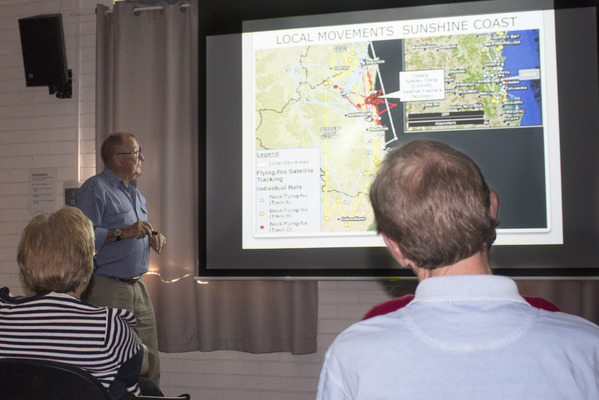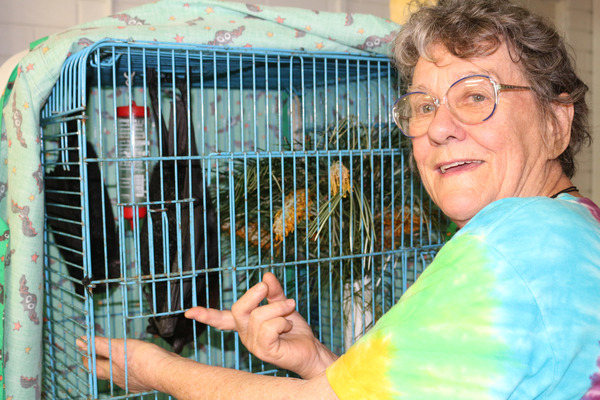By Margaret Maccoll
Bats make bad neighbours. They are smelly, noisy and offensive, but it’s hard not to admire their resilience, adaptability, intelligence and the role only they play in pollinating our native trees, bat expert Dr Les Hall told Noosa U3A on Friday.
“Flying foxes are quite often in the news. They’re quite good at making a nuisance of themselves,” he said.
There are 26 species of bats living on the Sunshine Coast and 86 across Australia.
There are three species of flying foxes on the Sunshine Coast, and each has a different breeding season.
Dr Hall said because of their continual movement across large distances in search of food and their different breeding seasons, managing them in urban environments was very difficult.
“If you are trying to chase them away and there’s food there, it’s a waste of time,” he said.
“It’s like taking the shops away from people and leaving them without food.”
Dr Hall said flying foxes only stayed in an area where there was food and would have their babies where it was safe and there was food.
“There’s been so many attempts to move them that have failed,” he said.
He said instead of trying to chase or deter them more time should be spent predicting the flowering of plants they ate and providing reserves for them.
As humans have taken over and destroyed their habitats, bats have been forced to move into urban areas where they have been shot at, netted, electrocuted on powerlines and chased.
“They’ve copped a lot of punishment, but they’re so important to our environment,” he said.
Les said flying foxes were the only species that pollinated at night when some native plants flower and across distances which maintained the vigour of trees and prevents inbreeding that could cause stunting or disease.
Another misconception about bats was that they transferred Hendra disease to horses. He said bats can contract Hendra, but much research has shown bats do not transfer the virus to horses.
“It has been 24 years since Hendra was discovered, and we don’t still know where it comes from,” he said.
The Sunshine Coast Bat Rescue volunteers are gearing up to assist bats during the impending summer after thousands died in previous heat events.
Spokeswoman Terri Ridgway said during extreme heat last year female grey headed flying foxes which were an endangered species, spent days flapping their wings to keep their babies cool before dropping dead from exhaustion.
“A member of the public found all these babies on the ground,” she said.
“We had to walk away because we didn’t have enough carers.”
She said in 2014 the heat killed 50,000 animals.










